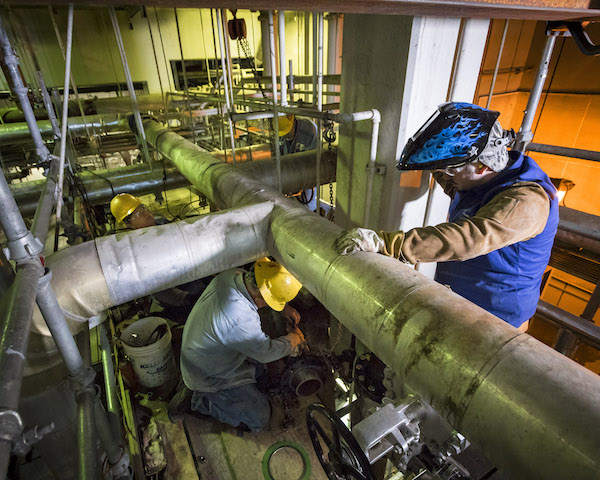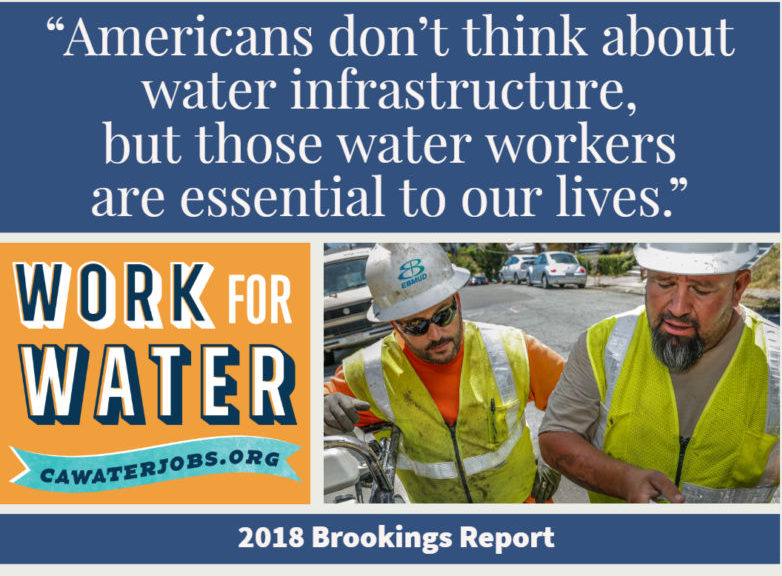
Central San mechanics. Photo by Joe Zumbo
Press release from the Brookings Institute…
Building off previous workforce research, the Brookings Metropolitan Policy Program has released a first-of-its-kind analysis of jobs involved in the construction, operation, and maintenance of the country’s water infrastructure. Nearly 1.7 million workers fill jobs in utilities, construction firms, and numerous other employers across the water sector, while facing lower educational barriers to entry and earning more competitive pay.
The report, “Renewing the water workforce: Improving water infrastructure and creating a pipeline to opportunity,” emphasizes the vast scope of the U.S. water workforce, which employs workers across 212 different occupations.
The water sector is emblematic of this opportunity, especially given the strategic location of many water utilities as anchor institutions in the country’s most disadvantaged neighborhoods.
Notably, the report finds that jobs in the water sector pay well–not only on average, but also up to 50 percent more to workers at the lower end of the income scale. Many of these positions do not demand as much formal education either; 53 percent of water workers have a high school diploma or less, compared to 32.5 percent of all workers nationally.
Finally, like other workers in the skilled trades, water workers boast high levels of on-the-job training and develop transferable skill sets, offering long-term career pathways in an age when technologies and other labor market shifts are upending other economic sectors.
The research shows there is a clear opportunity for these infrastructure jobs to draw from a younger, more diverse workforce.
“Renewing the country’s infrastructure requires a sizable workforce, and improving water infrastructure offer enormous environmental and economic returns for residents in every community,” said Joseph Kane, a senior research associate and associate fellow at the Brookings Metropolitan Policy Program and lead author of the report. “However, there are still several gaps to address in order to hire, train, and retain a skilled and diverse water workforce in years to come.”

In addition to measuring the sizable economic impact of infrastructure jobs, the report also offers a new policy playbook that local, state, and national leaders should use in future water workforce development efforts. This playbook calls for several actions:
“The timing of this research could not be more important,” said Adie Tomer, fellow at the Brookings Metropolitan Policy Program and co-author. “With Congress considering new workforce strategies and metropolitan areas of all sizes debating new hiring and recruitment practices, the country can get more people in good paying jobs that help protect our health and environment for generations to come.”